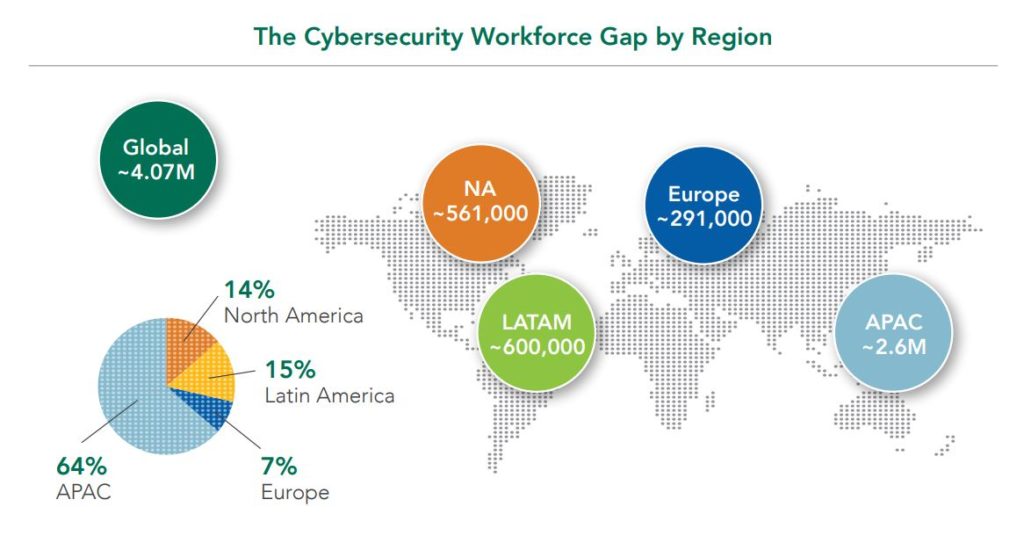
Europe’s cybersecurity skills gap has almost doubled over the past year, a new report claims, with 291,000 more security professionals needed to meet business demand this year alone, while the global cybersecurity workforce needs to increase by 145 percent.
That’s according to the latest annual report by the non-profit cybersecurity professional association (ISC)², which surveyed 3,237 individuals and tapped publicly available data for the wide-ranging report, which also assesses salaries, skills and hiring demand.

As the report notes: “[A] lack of skilled/experienced cybersecurity personnel is the top concern among survey respondents—even more of a concern than a lack of resources to do their jobs effectively. In addition, 51 percent of cybersecurity professionals say their organization is at moderate or extreme risk due to cybersecurity staff shortage.”

Cybersecurity Skills Gap Report: Salaries and Job Satisfaction Assessed
Those in the industry are largely satisfied with their roles, the report shows: just over 65 percent of respondents said that they were satisfied with their current job, while a sizeable 84 percent said they are where they expected to be at this point in their careers given their current skill and experience.
The report does highlight a significant disparity in salaries for cybersecurity professionals across the world. In Europe trained cybersecurity professionals earn an average of £45,000 a year, while their American counterparts can earn £72,000.
The report also shows that European professionals are earning less than similar professions in the Asia-Pacific region where they can earn £48,000 a year.
 Credit: ISC
Credit: ISC
Given the high wages it is probably not a coincidence that job satisfaction in North America is over 70 percent. Overall roughly 66 percent of all respondents to the study stated that they were somewhat or very satisfied with their current job, with only seven percent saying they “hated” it.
The report notes: “That desire for a cybersecurity career revolved around the high demand for cybersecurity skills and the rapidly changing challenges that keep the job interesting. These prospects-turned-professionals also saw that the growing field offered job security and was continuously evolving while allowing them to put their skills to use in nearly every industry.”
Cybersecurity Skills Gap: More Training, More Women
Companies should implement a number of strategies to help build a robust cybersecurity team and ensure that the workforce gap is closed within their region. Recruiting and training more women would be a good start: “Cybersecurity professionals are more than twice as likely to be male, meaning there is an under-tapped demographic available for recruiting if companies can position the
role in a way that overcomes common stereotypes” the (ISC)² says,
Firms should be targeting new entrants into the work force, especially those who have just graduate college or have just started their cybersecurity career; and companies need to be ‘realistic’ about what job requirements and certifications they demand based on the level of position they are hiring for, the report notes.
(Security professionals often bewail an environment in which “entry-level” roles require significant experience and qualifications).
“Many entry-level and even mid-level positions will be appealing to candidates without the years of experience required to earn many of today’s in-demand cybersecurity certifications. But as our study has revealed, these professionals will be driven to obtain those certifications during their career, which will provide you with even more confidence in your cybersecurity team.”






